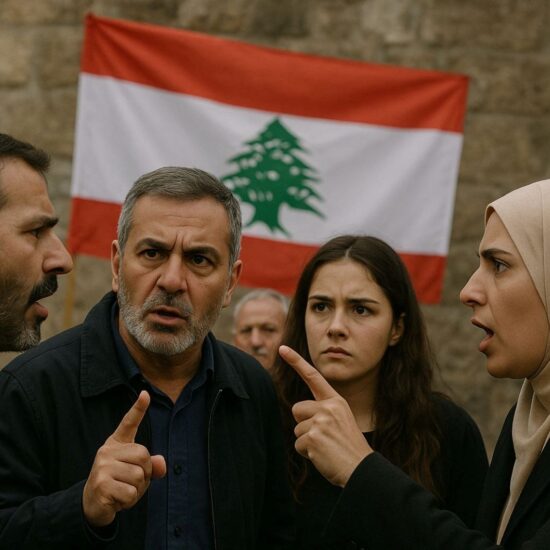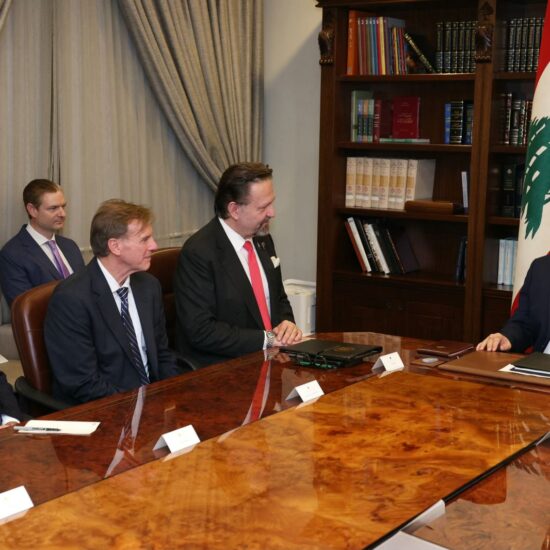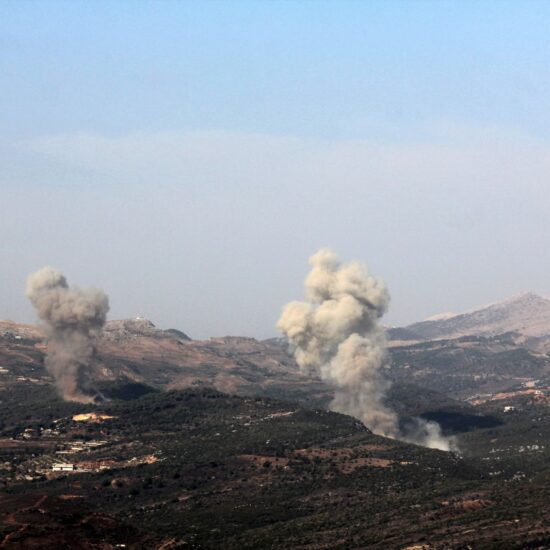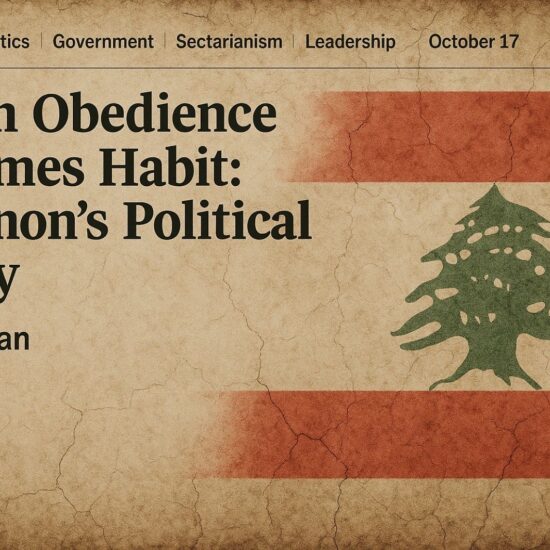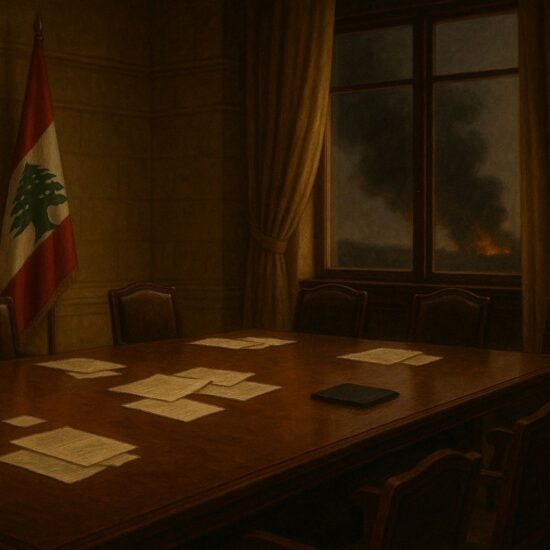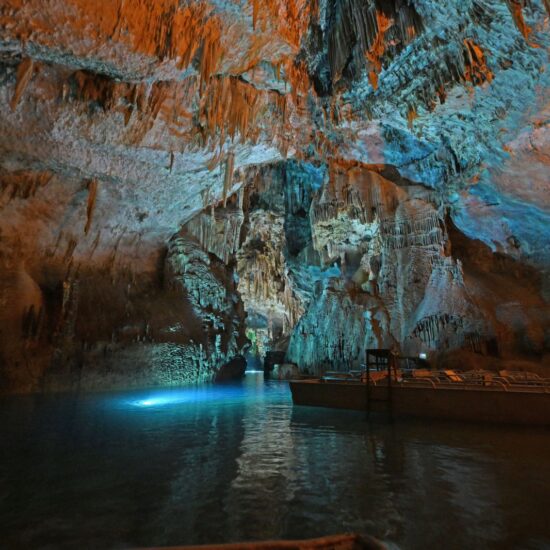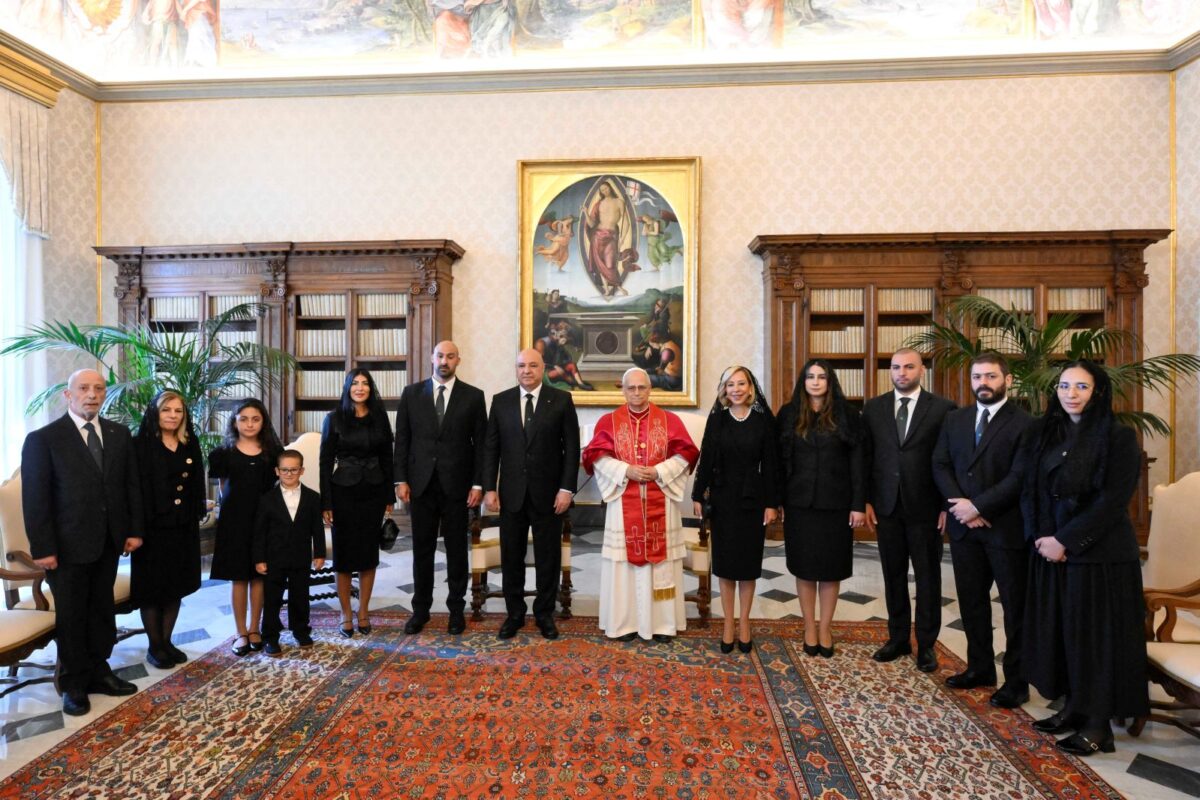
Pope Leo XIV, head of the Catholic Church chose Lebanon as one of the first countries he will visit in the region. This decision seems to carry deep political and religious symbolism and sends layered messages to both the Lebanese people and the wider region
Traditionally, popes have reserved their first visits for major world capitals or countries of global political influence. By choosing Lebanon, a small dot on the world’s map, and a country grappling with one of the worst crises in its history, Pope Leo breaks with precedent and places Lebanon firmly at the heart of the Vatican’s moral and spiritual geography.
Pope Leo XIV, who succeeded Pope Francis earlier this year, will make his first apostolic trip to Turkey and Lebanon from November 27 to December 2. His visit to Lebanon is scheduled from November 30 to December 2 in response to an invitation from the Lebanese President and ecclesiastical authorities.
The message is clear: Christians in the Middle East are not peripheral, they remain central to the Catholic Church’s mission and concerns.
Why now & why Lebanon?
The visit’s significance goes beyond its spiritual meaning, its timing is just as important. It comes at a moment of growing political tension inside Lebanon, as Washington increases pressure on Lebanese authorities to enter direct negotiations with Israel.
The visit also represents the continuation of a journey that Pope Francis was never able to complete.
Pope Francis had long expressed his wish to visit Lebanon, but health complications and the country’s political and security conditions stood in the way. This upcoming trip could therefore be seen as an act of fulfillment and a gesture of continuity and faithfulness.
Although the Vatican has recently announced the official program for Pope Leo’s visit to Lebanon, the Pope’s insistence on coming to Lebanon is significant despite reports that Queen Rania of Jordan advised against it due to his safety.
This highlights the Vatican’s recognition of Lebanon’s historic and spiritual role, the same one Saint John Paul II once described when he said, “Lebanon is more than a country, it is a message.”
Dr. Soha Choueiri, a lecturer of theology and religious studies at the university of Chester, told NOW that the Pope’s decision to visit Lebanon at such a turbulent time is significant. “Lebanon is passing through one of its most fragile periods, politically, economically and socially, yet the Pope’s decision to come now is a message of solidarity with a reminder that despite Lebanon’s political divisions, it remains a spiritual landmark in the region.
She added that the Pope’s arrival “may not solve Lebanon’s crises, but it can offer a moral compass.”
Between faith and turmoil
This won’t be the first time a Pope visits Lebanon. In 1997, Saint John Paul II came to a country trying to recover from years of civil war. His visit was a moment of hope and reconciliation, and it led to the launch of the Synod for Lebanon.
Fifteen years later, Benedict XVI visited during a very tense time in the region, as the Arab uprisings spread and Syria fell into war. His message to the Lebanese people was to stay rooted in their land despite the turmoil around them.
Today, Lebanon faces a different kind of crisis. The country is on the edge of war due to tensions between Hezbollah and Israel, it is also collapsing economically. The struggle is no longer the political paralysis but also the rise of poverty, emigration, and growing despair, yet many Lebanese are eager to stay in the country. In this context, the upcoming visit of the Pope could be seen as a message that hope itself can be an act of resistance.
Years of political paralysis and deep divisions have fractured the country, making a stage for regional rivalries and international power plays as it is now a country caught in the crossfire of messages exchanged between Iran, Israel, and the West.
Maria Khoury, a 26 year old activist and volunteer with a local community initiative in Deir El Qamar, said the Pope’s visit feels like “a moment of hope in a country that has forgotten how to hope.”
Maria told NOW: “For many young people, life in Lebanon has become about surviving, not dreaming,” she said. “The Pope’s visit reminds us that we still matter, that Lebanon’s story isn’t over yet, even if we sometimes feel abandoned by our leaders and the world.”
“In Deir El Qamar, people of all backgrounds are talking about it as it is not only about religion, it’s about feeling seen, about knowing that our country still holds a message of coexistence and dignity.” She added.
President welcomes the Pope’s visit to Lebanon
President Joseph Aoun welcomed the announcement of the first apostolic visit to Lebanon by Pope Leo XIV, describing it as “a moment of deep spiritual and national significance.”
Aoun emphasized that the papal visit marks “a defining milestone in the deep relationship that has long bound Lebanon to the Holy See.”
He said it reflects “the Vatican’s enduring trust in Lebanon’s role, both as a message and as a homeland, within its region and in the world,” echoing the words of past popes who saw in Lebanon’s spiritual and cultural diversity “more than a country, a land of dialogue and peace, a meeting point of religions and cultures, and a living message of coexistence.”
“The Pope comes to a Lebanon whose people, from the far north to the deep south, open their hearts to him,” Aoun continued. “Lebanese of all faiths and communities, Christians and Muslims alike, are preparing with sincere joy and rare national unity to welcome His Holiness.”
Rodayna Raydan is a Lebanese-British journalist. You can follow her on Twitter @Rodayna_462



